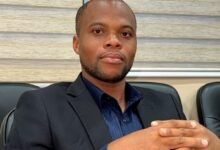PURPOSEFUL THINKING
Scot Peck in “The Roadless Traveled and Beyond” believes that one of the major dilemmas we face both as individuals and as a society is simplistic thinking – or the failure to think at all. “It is not just a problem, it is the problem.”
Given the imperfections of our society and the apparent downward spiral of spiritual and moral values in recent years, thinking has become an important issue. It is more urgent now – perhaps more urgent than anything else – because it is the means by which we consider, decide, and act upon everything in our increasing complex world.
Thinking is difficult. Thinking is complex; and thinking is – more than anything else – a process, with a course or direction, a lapse of time, and a series of steps or stages that lead to some result. To think well is difficult, often painstaking process until one becomes accustomed to being “thoughtful.”
Since it is a process, the course or direction may not always be apparent. Not all the steps are linear, nor are they always in sequence. Some are circular and overlap with others. Not everyone seeks to achieve the same results. Given all this, if we are to think well, we must be on guard against simplistic thinking in our approach to analyzing crucial issues and solving the problems of life.
Although people are different, an all-too-common flaw is that most tend to believe they somehow instinctively know how to think and communicate. In reality, they usually do neither well because they are either too self-satisfied to examine their assumptions about thinking or too self-absorbed to invest the time and energy to do so. As a result, it is impossible to tell why they think as they do or how they make their decisions. In addition, when challenged, they show little awareness of – or become easily frustrated by – the dynamics involved in truly thinking and communicating well.
The subject is simply too large, Dr. Scott Peck opines. Indeed, thinking is not a topic that anyone can digest through one sitting. Whole books can (and have been) written about it. It is no surprise that many people resist the arduous efforts involved in continually monitoring and revising their thinking. “Yet if all the energy required to think seems troublesome, the lack of thinking causes far more trouble and conflict for ourselves as individuals and for the society in which we live.”
Hamlet’s often quoted “To be or not to be?” is one of life’s ultimate existential questions. Another question gets to the heart of how we interpret that existence. Dr. Scott Peck paraphrases Shakespeare to ask, “To think or not to think?” He believes that is the ultimate question in combating, what he calls: “simplism;” and at this point in human evolution, he emphasizes, it may be the very equivalent of “To be or not to be?”
From Dr. Speck’s practice as a psychiatrist and his experiences and observations in general, he has become familiar with the common errors related to the failure to think well. One, of course, is simply not thinking. Another is making assumptions in thinking, using one-dimensional logic, stereotypes, and labeling. Another problem is the belief that thinking and communication do not require much effort. Another is assuming that thinking is a waste of time, which is a factor in the anxiety we experience around the failure to solve many social problems.
THE POINT OF HAVING A BRAIN
Whether in humans or other mammals, psychiatrists believe that the brain consists of three components: the old brain, the midbrain, and the new brain. We believe that each has unique functions in the “orchestra of organs that work in unison to keep us alive.”
Throughout the brain are nerve cells called neural centers. In the old brain, these centers serve the purpose of monitoring physiological needs, such as controlling our respiration, heart rate, sleep, appetite, and other very basic but primitive functions.
The area known as the midbrain is larger and more complex. The neural centers of the midbrain are involved in the governance and in the production of emotions.
The new brain consists mostly of cerebral cortex, which is also involved in primitive activities including instincts and locomotion. According to brain study research, the biggest difference between us humans and the other mammals is the size of our new brain, and specifically of that part known as the frontal lobes. The direction of human evolution, the research indicates, has been primarily in the growth of the frontal lobes. “These lobes are involved in our ability to make judgments, and it is here that the processing of information – our thinking – primarily takes place.”
Furthermore, Dr. Peck observes that just as our capacity for learning depends on thinking, our capacity for thinking well depends on learning. Therefore, he posits that, another central factor that distinguishes human beings from other creatures is related to our ability to learn. While we have instincts like other animals, they do not always automatically govern our behavior to as great a degree. This factor gives free will.“We have been endowed with the combination of these frontal lobes and freedom, which enables us to learn throughout a lifetime.”
Another area of interest to psychiatrists is the fact that split-brain research has shown that the left side is the analytical brain, with the ability to take wholes and break them into pieces, while the right side is the intuitive brain with the ability to take pieces and make wholes out of them. As human beings, we have the ability to learn both of these two primary types of thinking: concrete and abstract. Concrete thinking deals with particulars in their material form. Abstract thinking deals with particulars in general and theoretical terms.
The research on split-brain represents, Dr. Peck believes, is the most formidable advance in the field of epistemology (the study of nature), suggesting that we have at least two ways of knowing, and that obviously we will know things better if we use both left-brain and right-brain thinking. That is why some of us are great proponents of androgynous (having both female and male traits) thinking. Being androgynous does not imply someone is desexed. Men do not lose their masculinity and women do not lose their femininity if they are androgynous. Rather, they display the characteristics of both sexes. Thinking, in that sense, would imply the ability to use both sides of the brain to integrate concrete and abstract realities.
SIMPLISM AND SOCIETY
Various institutions of society, in their failure to teach or demonstrate how to think well, set people up for thinking simplistically. Typically, this failure is found among the most immensely influential institutions of society including, more often than not, the family, the church, and the mass media. Given that they have the greatest impact on our lives, the deceptive messages they impart to us about what is important in life cannot be taken lightly. Because they are our cultural leaders in portraying certain ways of thinking and living as truth, these institutions have the power to manipulate us. Dr. Speck strongly believes that they often unwittingly promote half-truths – sometimes even blatant lies – under the guise of cultural ideas that we have taken for granted to be “normal.” Based on cultural norms, we usually assume that if everyone is thinking or doing that, it must be normal and correct.
Such norms include not only notions about what should be the good life and what should be acceptable, but also what should be considered bad or inappropriate. There are positive norms, of course, such as those that promote the work ethic and encourage civility in our encounters with each other.These positive norms are not the problem. The norms that create cultural chaos are the ones we must rethink. Negative norms are frequently dressed up and made to look and sound pretty. Nevertheless, when you go beneath the surface, you will find they are negative precisely because they discourage our growth. “They are based on half-truths and outright lies that serve to manipulate and hold us hostage psychologically and spiritually.”
BY CAPTAIN SAM ADDAIH
RTD





